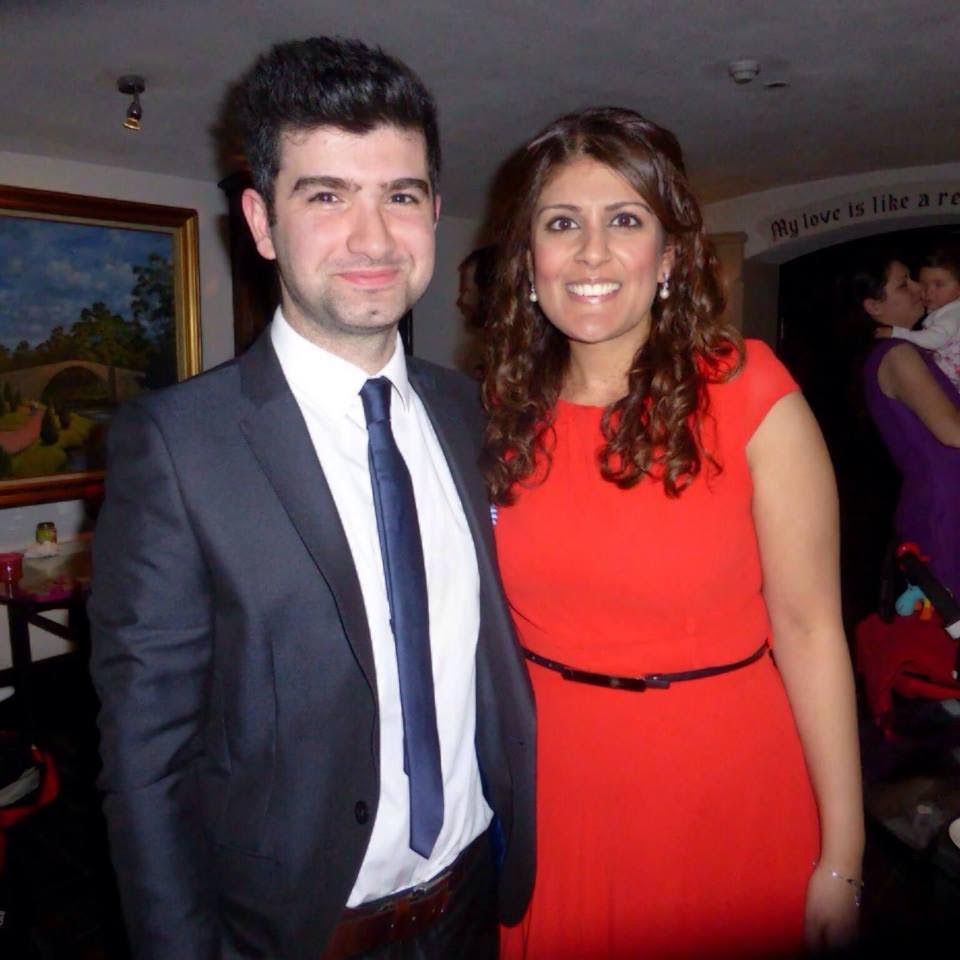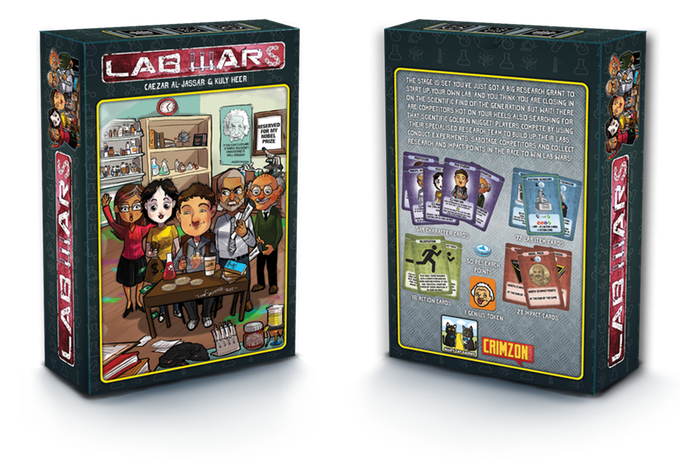
Can’t get enough of the personal and professional politics that dog a scientific career? On your off-hours, you can play a new game called Lab Wars, which lets players reenact the best – and the worst – parts of climbing the scientific career ladder. It was developed by two researchers — Caezar Al-Jassar, a structural biologist at the MRC Laboratory of Molecular Biology, and his partner Kuly Heer, a psychologist at the University of Hertfordshire – while they were on vacation together in Spain last year, according to The Scientist. The pair launched a Kickstarter campaign this week to raise money to manufacture and sell the game — and quickly met their funding goal, and then some.
Retraction Watch: You say the game — also featured this week in Nature — was inspired by author Michael Brooks. How?
Caezar Al-Jassar: Michael Brooks wrote the fantastic book The Secret Anarchy of Science. Essentially it is a book about academic sabotage and trying to keep ahead in academia. We thought that since we were researchers and understood the realities of research, and the fact that we were board gamers we would try our hand at designing a board game along those same lines.
RW: Can you talk us through how a theoretical game might progress?
CAJ: Of course! Each player would play one of five characters each turn from their research team to conduct their experiments for them. Then players would receive bonuses for their characters and the lab items in their lab area. Players would then “purchase” lab items into their lab area and conduct experiments to acquire more and more research points. The end of the game is when players have depleted their ability to publish books and papers and the player with the highest “impact points” wins.

RW: Who is your audience for the game? Cards such as “Fluorescent tech” might not make sense to non-experts, but scientists play a real-life version of Lab Wars every day at work, so will they want to continue to do so with their family and friends during free time?
CAJ: The audience is primarily scientists, but also those who like to play board games and have an interest in science in general. Interestingly, we’ve just come back from demoing our game at the UK’s largest board game convention (The UK Games Expo) and many scientists came up to our stall specifically to play it. So we hope that despite it being “close to home” people would still want to play it!
RW: Some of the cards tell players to engage in misconduct – such as stealing another player’s paper or lab equipment. How did you come up with the specific scenarios?
CAJ: Well they don’t HAVE to engage in misconduct, it depends on if the player is devious enough to do so! Some of the scenarios are recorded in history such as those in Brooks’s book. However, some are from those we have heard from other scientists’ accounts such as the Radioactive Sabotage card. In this instance, I heard through the grapevine that someone in a lab radioactively poisoned another co-worker’s tea due to jealousy — causing them severe illness. Obviously, there is no way to verify this but we thought it was crazy enough to go into the game.
RW: Some cards offer the option of professional sabotage, such as blocking someone’s promotion or using up someone’s time for training. What inspired you to come up with particular scenarios?
CAJ: Sure, so as an example, if I was to use the PhD student they would sabotage another player’s postdoc in the game. This would be based on my own and other people’s experiences of taking up the precious time of the post doc – in this case, with training a graduate student [yes?]. Another example would be if I played the principal investigator and another player used the PhD student, the PhD student would be sabotaged. Again, this would be based on other people’s experiences of the principal investigator needing the PhD student to work hard to get the results since the principal investigator is often bogged down applying for grants.
RW: Our blog is dedicated to telling the stories behind misconduct – what’s the value, in your opinion, to making up stories about misconduct as part of Lab Wars?
CAJ: I think it’s important firstly to highlight that science and academia is an important fabric of society. Without the tireless efforts of scientists around the world we would not progress at the pace we have seen over the last century, for instance. However, I think it’s also important to show that, like with any endeavor which requires input from a human being, some things will go wrong. It’s therefore important to realize that despite the importance of science we should be careful about (for instance) sensationalist ideas until others have duplicated the findings and is established. Science is always changing, and that is its beauty.
RW: How much money do you hope to raise on Kickstarter, and what will you use it for?
CAJ: We hope to raise a minimum of £5000 which will be enough to manufacture the game at a very high standard and deliver to our backers. We will then use any leftover money to invest into our company to create more science-themed games!
Like Retraction Watch? Consider making a tax-deductible contribution to support our growth. You can also follow us on Twitter, like us on Facebook, add us to your RSS reader, sign up on our homepage for an email every time there’s a new post, or subscribe to our new daily digest. Click here to review our Comments Policy. For a sneak peek at what we’re working on, click here.
It’s fun for the perpetrator who got away with it. For the victim of misconduct, it’s anger, rage, and a yearning for justice. This is the reason why scientific fraud or misconduct should have a greater penalty and a more effective deterrence.
Although they don’t describe this as academic misconduct (I suspect deliberately) a lot of what is described here is not specific to academia and is not academic misconduct, rather it’s just your run of the mill, petty office politics. This is low level misbehaviour that can be difficult to identify, harder to stamp out and can really destroy a work envrinoment. It largely requires cultural change in an organisation so that peer pressure takes care if it.